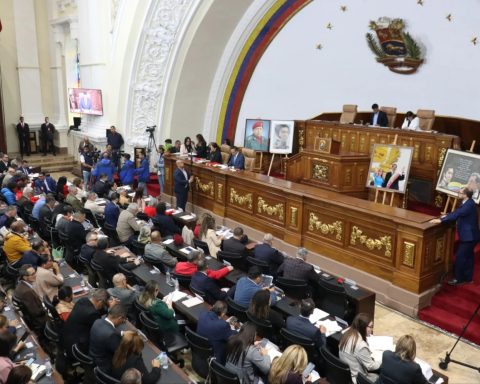In the Chamber of Deputies a reform is being promoted Federal Labor Law (LFT) to recognize December 12, the day of the Virgin of Guadalupe, as a mandatory rest date For private sector workers, this is due to the economic benefits generated by the holiday and because labor legislation already recognizes religious celebrations such as Christmas.
According to federal deputy Rubén Moreira, parliamentary coordinator of the PRI, the official calendar of the Ministry of Public Education (SEP) already recognizes religious commemorations as holidays, for example, the Holy Week days.
“Likewise, in various companies in Mexico, they carry out similar practices, workers celebrate religious events, in many cases, they continue with work gatheringsFor example, bank workers resumed the celebration to commemorate Bank Worker Day, so there is no service at the national level,” says the legislator, promoter of the initiative.
According to the Secretariat of Economic Development of Mexico City (Sedeco), only in 2022 will parishioners visit the Basilica of Guadalupe It left the country’s capital with an economic impact of close to 225 million pesos.
Furthermore, Concanaco-servytur estimates that the day of the Virgin of Guadalupe generates a positive economic impact greater than the 15,000 million pesos throughout the country. The sale of religious items mainly benefits retail, but there are also profits for companies in the food and drink, hospitality and transport sectors.
“Although the family, work and school dynamics are affected by this celebration, the December 12 It is not a date established as a mandatory rest date according to article 74 of the Federal Labor Law (LFT), despite the fact that some employers do grant this rest date,” highlights Rubén Moreira in the initiative.
For now, the Federal Labor Law contemplates in total nine days off mandatory (seven permanent and two every six years). These are the holiday dates:
- January 1, for New Year
- First Monday in February, for the anniversary of the Constitution (February 5)
- Third Monday of March, for the birth of Benito Juárez (March 21)
- May 1, for Labor Day
- First Sunday in June when there is a federal election day (every three years)
- September 16, for the anniversary of Independence
- October 1 for the transmission of the Federal Executive Power (every six years)
- Third Monday of November, for the anniversary of the Revolution (November 20)
- December 25, for Christmas
Labor legislation includes specific regulations for people who work on a holiday. In accordance with labor legislation, the employer is obliged to provide an additional double salary to the ordinary salary for the day worked; In practical terms it is a triple payment.
October 1, the last one added to the list
The last reform to the LFT in this matter was to recognize the October 1st as a mandatory day of rest For the workers, this is due to the transmission of the Federal Executive Power.
Although October 1 was a new date in labor legislation, in practical terms the number did not increase. number of holidays for the workforce, since it replaced December 1.
In other words, the last reform was a harmonization of the Federal Labor Law with the constitutional reform of 2014, this modification to the Magna Carta set that date for the transmission of Executive Power.
Until the constitutional reform, the country had a long period (six months) between election day and the presidential change. For example, in economies like Hungary or Portugal, leaders take office eight days after being elected.















